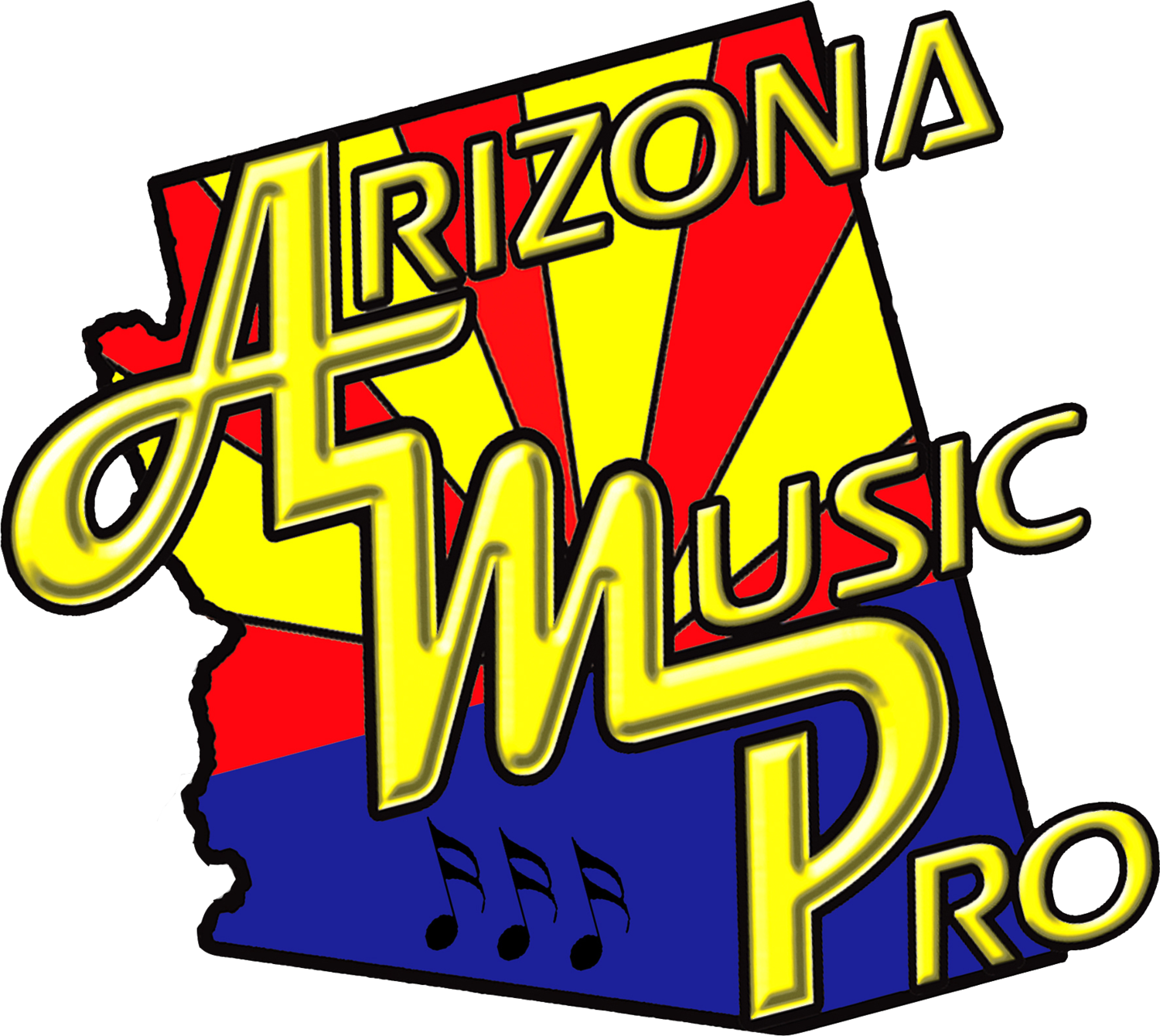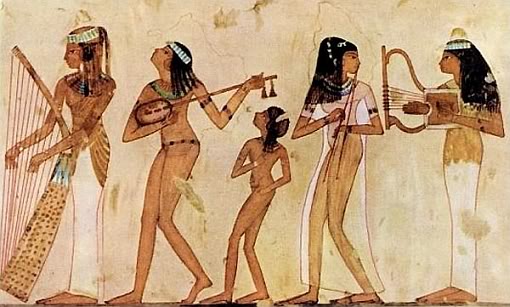From Couch to Corner: How To Start Busking Tomorrow
By Justin Boden
Since the beginning of recorded human history gratuities have been given for public music performances across all cultures throughout the world. That’s 5,000 years or so of passers-by listening to iterations and variants of the timeless classic Wonderwall and tossing a pence or two to the musician when it happens to strike a chord.
Ancient Egyptians performing Wonderwall?
Okay, maybe not Wonderwall exactly, at least prior to the last 20 years, but you get the point. Busking has been a prominent feature of the human historic landscape and for good reason. In fact, prior to the age of electronics, phonographs and recording devices nearly all musicians spent their entire lives busking via public performance for money as their only source of income. It was a career choice, a lifestyle and the only way to hear music live.
Today, busking as a career choice might not be the musician status quo, but it certainly isn’t dead and has become a staple of many of the most vibrant cities across the United States, including where we call home - Flagstaff, AZ. Many famous musicians like Rod Stewart, George Michael, Janis Joplin, Beck and Ed Sheeran started busking to hone their chops and some, like The Violent Femmes, were discovered performing on the street. Even Benjamin Franklin, the kite-flying, newspaper-publishing inventor got in on the jam performing prose in the public as a busker early in his life. It is said that those years busking helped develop his beliefs about the importance of free speech despite eventually becoming dissuaded by his father who didn’t want his son living the rock star lifestyle. Busking matters in the social scope and is an essential part of today’s musical experience whether performer or audience.
Busking is often the next step from playing songs in the garage or bedroom. It’s a vital step towards performing on a stage and can help a player gain confidence playing in front of people without as much of fear from the “all eyes on me” feeling. It can also be a fun way to practice newer songs and see how audiences might react to particular pieces. Bring a few smiles and you’re destined to make some money while you’re at it too, which for many performers can equate to a higher hourly wage than many part-time jobs. If you’re looking for a little extra income from that now too common “side-hustle”, want to really work on your craft as a musician, dedicate yourself and become a working musician in the fullest sense or just want to spread some happiness for a day, here’s what it takes to become a successful busker.
Credit: Luz Bailar
Practice, Practice, Practice
Stop me if you’ve heard this one. Practice is the answer to nearly every single musician’s question regarding what it takes to achieve mastery levels. If you’re preparing to play in front of people practicing is essential. People value their time so if you can’t make it through the songs you’ve selected without stopping then you simply have not spent enough time running through that song. Keep at it! It will come and while it may seem monotonous at times, the greatest performers could play through their songs under the most adverse conditions and still be premier showmen. You’re vying for an ever-shrinking attention span, so burying yourself in just trying to remember lyrics or chord changes will only hinder your success.
You might even start to feel tired of some of those songs, but don’t let that sway you. Once you see someone’s eyes light up because you’re playing that very song, you’ll forget that it ever bothered you in the first place. Plus when that does happen it gives great reason to continue adding to the repertoire. Add new songs and broaden your catalog. It might not be a song that you generally prefer yourself, but if its a hit with crowds, it’ll make a lot of people happy and might fatten that wallet more too.
Don’t be “Breakin’ the Law, Breakin’ The Law”
The first recorded laws directly made to regulate busking date all the way back to 462 BC in ancient Rome. Under the penalty of death, The Law of Twelve Tables outright banned parodies or song about the government in a public place. Luckily things have relaxed somewhat but not following the rules and laws of your locale can net you a quick visit with the local Johnny Law and even cost you money via a ticket.
It’s the information age after all, and it’s never been easier to learn what is allowed or how to ensure you’re ready to perform in the city you happen to be in. Many cities across the globe require permits to be purchased and possessed in order to perform on their city streets, and some only allow particular portions of the city. Make sure you’re in code before you start your first song. It’ll save you headaches and will keep you on good terms with the boys in blue.
Some of the best places for busking across the United States include New York City’s Washington Square Park, San Francisco, Boston, Seattle and New Orleans. However as anyone who has spent a sunny day in Flagstaff can tell you, smaller towns are alive with performers.
Location, Location, Location (Timing Too!)
A successful busker doesn’t just throw a dart at a city map and see where it sticks. They research and plan exactly where they want to spend their time and when the best time to be there each day is. What style of music do you play? This greatly impacts which part of a town you may want to spend your time. Is your audience young? How do they spend their time? It’s likely that matching this up will encourage a better reception and as a result, more tips.
So you’ve got a part of town nailed down, now scout it and decide where exactly is a good spot. Ask the neighboring businesses if they mind, many are very friendly with buskers, especially when they are cordial themselves. They may even offer you free food or drinks should you bring in traffic or attract an audience. It never hurts to make sure that everyone is on understanding terms no matter what, plus it lessens your anxiety about it too.
Found that spot? Great! If you plan on playing more than once a week, find more spots, you’ll need them in order to keep audiences fresh and the tips coming.
Have The Right Gear
When you’re out on the streets you need two things to be certain to avoid a painstaking day. You need to travel light and you need to be prepared. That means having the right gear on hand should something go wrong, as well as an easy to carry set up, even if you want to use an amplifier so that you can be heard over the often loud noises that placate popular consumer highways where you’re likely to set up shop.
While everything you bring will be instrument and performance specific it's crucial you have extras of pretty much everything you use. An extra set of strings are crucial, as well as a tuner, extra picks should you use them and extra batteries for everything that takes one. It can be an absolute heart sink when you set everything up only to find out that your loop pedal has a dead battery.
Many decide to use amplification and it’s not a bad choice. Today’s models offer both an input jack for your instrument as well as an XLR input so that you can mic up any vocals. No place to plug in? Well, check out the Roland CUBE Street Performer which runs off of “AA” batteries yet brings 50W of power, easily enough power to get over any crowd and outdoor noise that may otherwise drown out an unamplified performance. Fishman also offers many options for the acoustic busker, all carried in-store at Arizona Music Pro.
Be Gracious
There’s going to be times when people are downright rude. Most of the time they’re not even going to glance up from their phone let alone drop any money into your collection. Don't let this phase you and understand that you're providing a non-guaranteed service! You’re not just there for you, you’re there for them too and when that’s recognized, its rewarded.
What does that mean exactly? It means the performers with smiles on their faces, that can play up a crowd and who are thankful for every gratuity that lands their way are the ones that keep coming back, that make a decent amount of coin and enjoy doing it the most. People react to kindness. Sure the tips might pay for a beer, or even food, or for some, rent. But at the end of the day, without those walking along, not paying attention in the first place, there’d be nowhere to fish in the first place. Graciousness breeds good things in this gig.





